Keywords
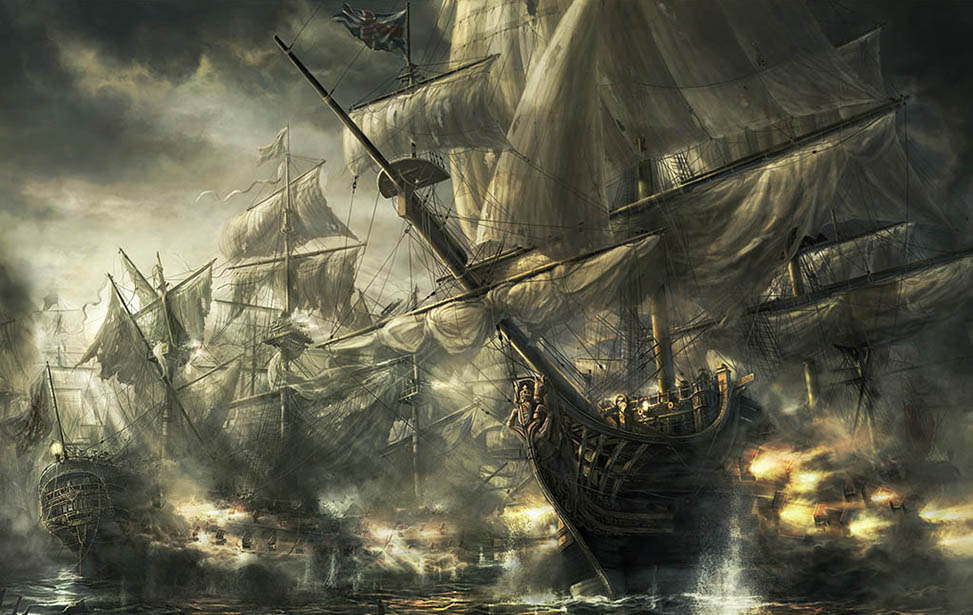
Atlantic/Transatlantic
The Atlantic designates the oceanic geography that unites the continents that border the Atlantic Ocean-Africa, Europe, and the Americas-into a regional system of economic, social, political, and cultural exchange. As a unit of historical analysis, Atlantic history tends to refer specifically to the period between European colonization in the Americas in the late fifteenth century and the end of slavery in the Americas in the late nineteenth. Atlantic studies is premised on the notion that national boundaries can no longer be regarded as the only viable category for discrete study. Issues of particular concern include the transatlantic slave trade, travel and exploration, transatlantic revolutions and independence movements, and other "contact zone" experiences created by economic expansion, migration, and colonial enterprises across the Atlantic.

Border/Boundary/Borderland
Border and boundary both refer to a dividing line that separates one realm from another (national, cultural, etc). Borderland, as a district of land surrounding the border, offers a liminal space where two different cultures and nations encounter one another and challenge the seemingly stable and definite ideology of the center. Borderland disrupts the binary opposition between two cultures, creates hybrid languages and subjectivities, and blurs the racial and class boundaries. Economic, social, and political regulations that hinder the process of transgression and hybridization can be found on the US-Mexican borderlands, for example. The matter of transgressing boundaries and questioning the set of values that endorse the hierarchy among the thus-divided realms of race, class, and culture, is one of the main themes in postcolonial literature.
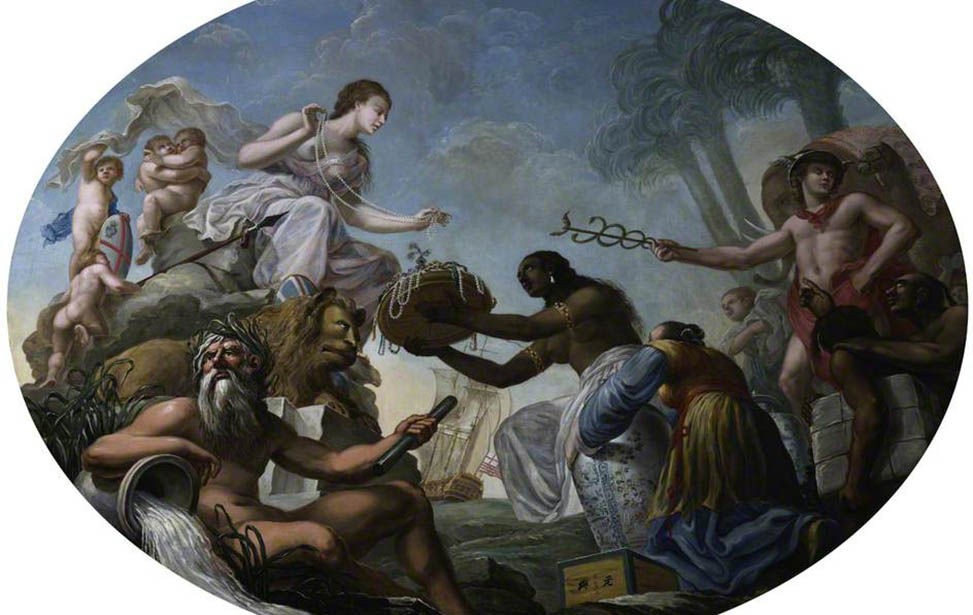
Colonialism/Decolonization
Colonialism refers to a mode of forms and practices used for "the settlement of territory, the exploitation or development of resources, and the attempt to govern the indigenous inhabitants of occupied lands, often by force" (Elleke Boehmer's Colonial and Postcolonial Literature, p.2). This process can also take ideological forms, such as through the introduction and enforcement of colonial languages, religions, economic systems, and cultural mores. Decolonization often describes the process in which once-colonized countries gain independence through resistance against empire, although this can take complex forms such as the decolonization of hierarchies in language, gender, race, as well as cultural and political ideologies.

Cosmopolitanism
(from the Greek word cosmopolites, meaning "citizen of the world") broadly describes the concept of community that brings together a diversity of individuals from different places, backgrounds, and cultures, and develops political, economic, ethical, and cultural relationships between its members so as to foster a shared communal identity. The concept of Postcolonial Cosmopolitanism provides a way of thinking about the displacement caused by Imperialism and conquest as an opportunity for travel, for crossing borders, for reinvigoration of individuality, and for hybridity, rather than as simply a cause for mourning and nostalgia for a lost home. In this view, cosmopolitanism finds vibrancy in newfound multiculturalism while also critiquing traditional assumptions about national identity, globalization, center and periphery, and the city as a space of inter-cultural relationships.
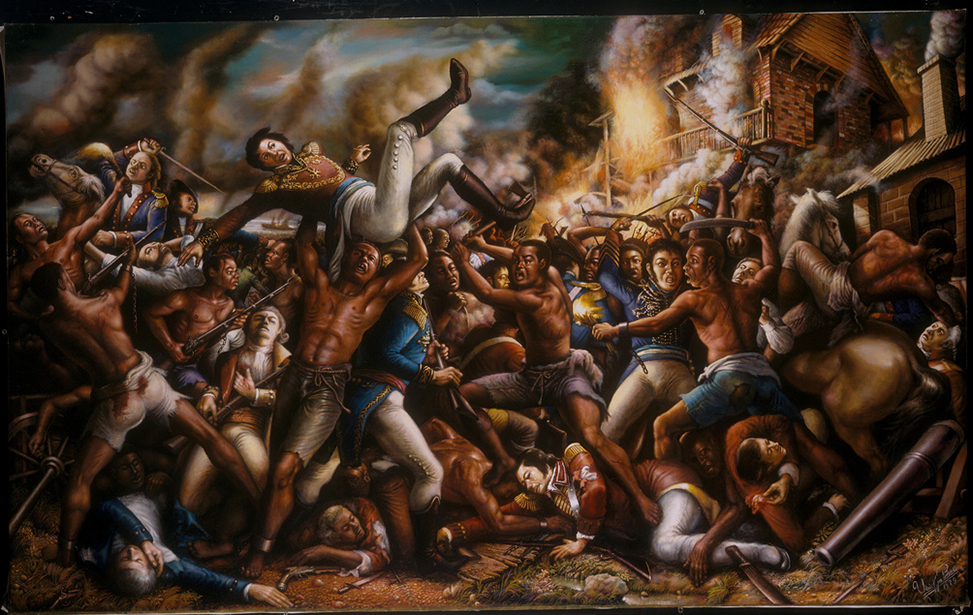
Creole/Creolization
The word 'creole' is "derived from the Portuguese crioulo, and is a word tied closely to transatlantic empire. It came to designate the European whites born in the New World but the current OED version of the term "creole" is someone born and naturalized in the West Indies or other parts of America, but of European (usually Spanish or French) or African origin; the distinction is not one of race, but rather of birthplace. In the Caribbean and Latin America the term can designate mixed race heritage. As a literary concept it signifies the mixing of cultural signifiers and narratives.

Diaspora
Diaspora comes from the Greek term, diaspeirein, meaning to disperse or scatter. Though first used to refer to the scattering of Jews after the Babylonian captivity, the term now connotes the dispersion of any people from their ancestral homeland, and the attempt to maintain through memory some attachment to the lost home. Conventionally associated with exile, persecution, and trauma (such as the African diaspora following slavery and the Middle Passage), in recent years the term has been embraced by a range of displaced populations. Diasporic literature therefore refers to a body of work written by a displaced population.
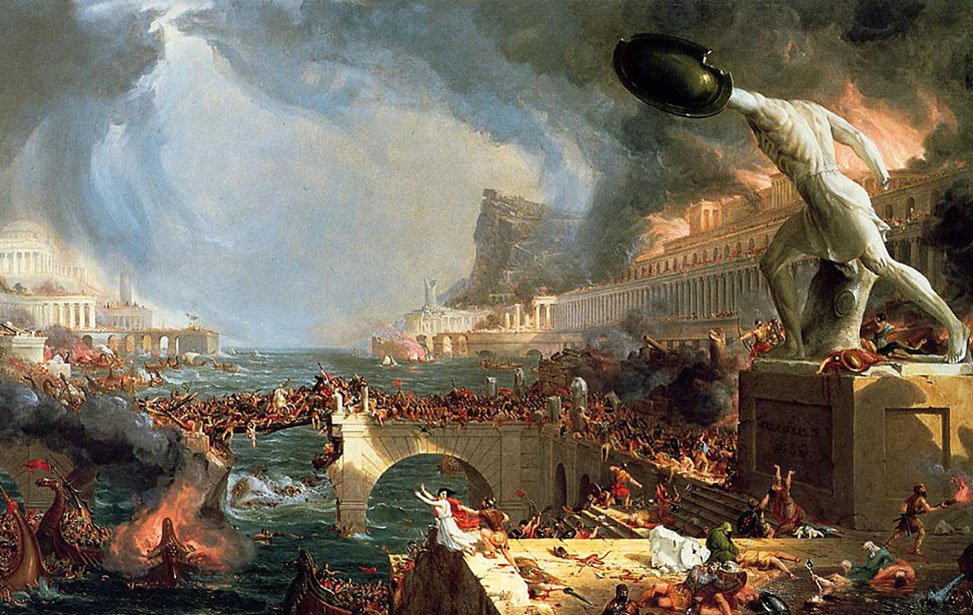
Empire
(from the Latin word imperium, "power"; adj.: "imperial"; cf: "imperialism") is a geopolitical system that combines territorial conquest/acquisition, military occupation, economic management, and cultural diffusion and hegemony. Empires typically operate through uneven distributions of power, with a metropolitan center and a set of far-flung, often ethnically distinct provinces or domains. "Imperialism" is often used interchangeably with "colonialism," although the terms are distinct; not all empires use colonies or colonial settlement. As George Orwell once wrote, empires are primarily money-making operations, which often involve the extraction of resources from the provinces, the accrual of wealth and capital in the metropole, and the circulation of commodities and people across long distances. In many cases, the human labor that produces value and wealth within empires is unfree, and empires have historically been aligned with systems of slavery and indentured servitude. Empires are also management systems that require a large class of bureaucratic middlemen. As a result of these factors, empires tend to coincide with mass movements of people, with attendant migrations of languages, religions, literatures, and cultural systems. Thus, while empires can deploy forms of cultural domination (as in the imposition of a language or the prohibition on indigenous practices), they can also enable interactions among cultures and new forms of cultural production.
_-_Geographicus_-_America-bowen-1747.jpg)
Hemispheric
Whereas the transatlantic approach usually emphasizes the relations of each new-world culture to its old-world counterpart affinities of language, cultural heritage, or racial ancestry, for example the hemispheric approach generally emphasizes the relations among and similarities between the literatures and cultures of the New World, focusing on what distinguishes the cultures and literatures of the New World at large from that of the Old the colonial past and neocolonial present, for example, racial and cultural diversity, processes of transculturation and creolization, and so on.
From Ralph Bauer's "Early American Literature and American Literary History at the 'Hemispheric Turn'"
.jpg)
Imperialism
- Tags: colonialism, Atlantic/transatlantic, empire
The study of imperialism is the study of the conditions and process by which empires are formed and maintained. This process involves at its core the interaction between two political entities in which the dominant metropolitan center of one exerts control over the effective political sovereignty of the other, often described as the subordinate periphery. Since the publication of Edward Said's influential Culture and Imperialism in 1993, literary critics of empire have often focused on the complex relationship between literary forms, genres, and theories, and the formation and reinforcement of imperial ideology, or, as Said more concretely put it, on how literature "allowed decent men and women to accept the notion that distant territories and their native peoples should be subjugated." Today, the study of imperialism has evolved to incorporate the critical concerns of a number of emerging disciplines, including ecocriticism, where representations of pristine nature suggest forms of colonial desire, and globalization studies, where analysis of the nature of worldwide systems of exchange have given rise to concerns about the possibility of a new imperial global order.

Migration
The term "migration" describes the movement of humans from one geographic location to another. Though migration can be viewed as either voluntary or involuntary, such relocation should be considered the product of complex historical, social, political, and economic conditions. The wide range of examples of migrations under duress includes the African slave trade, the Trail of Tears following the Indian Removal Act of 1830, and the Dust Bowl migration of the 1930s. Migration can also involve multiple sites of departure and destination and can take place as a single event or recurring event as is the case in the seasonal circulation of labor determined by agricultural cycles. Terms like "diaspora," "immigration," and "emigration" describe specific forms of migration.
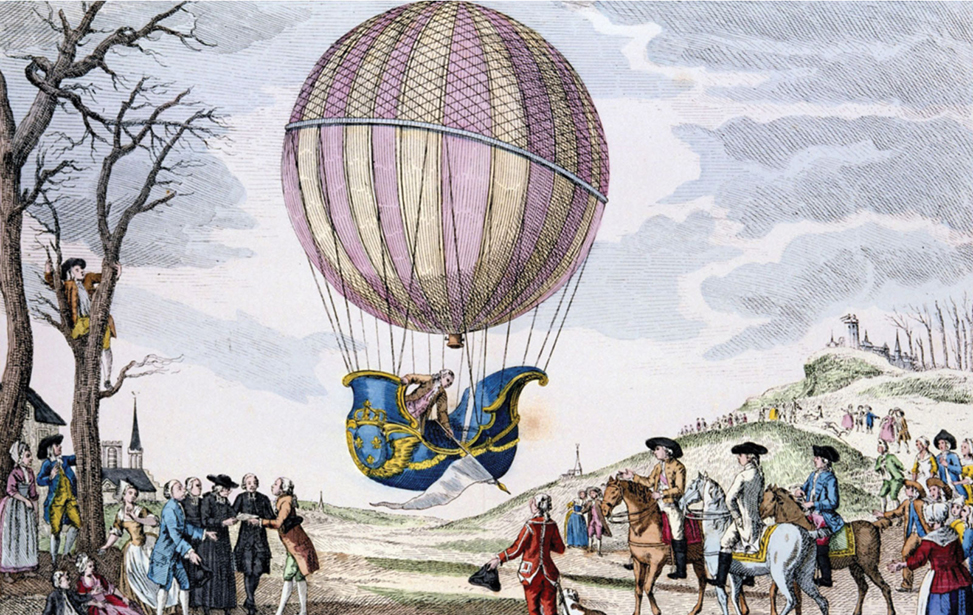
Modernity
- Tags: cosmopolitanism, colonialism, imperialism
Commonly, modernity marks the turn from post-medieval or agrarian society, to the industrialization and domination of capital. European empire, New World slavery, globalization, the centralized nation-state, secularization, alienation, and mass culture distinguish this historical change. Modernity can also be defined in terms of opposition: the attitude of being present day (often imagined as Western) placed in contrast to antiquity (often imagined in terms of the Global South). Imperial, Transnational, and Postcolonial studies seek to decenter this opposition between present and past, the Global North and the Global South. Modernity, in this sense, critiques the Western attachment to material and cultural progress, and explores the conditions of cultural contact that put European industrialization and progressive time in conflict with the varying cultural, religious, and social conceptions of history, memory, and futurity. Modernity, defined in this way, charts the mediation between the so-called second and third world, and the first world's domination of the global economy and of much literary and cultural production.
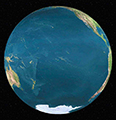
Oceanic
As a term in cultural and literary studies, "oceanic" brings together economic, ecological, and cultural patterns of circulation and diffusion across wide geographical spaces. Oceans are interconnected systems that separate far-flung territories while also surveying as the medium of communication and transportation between them. As a conceptual category, then, the oceanic operates beyond the national, and it cannot be fixed by a single language, culture, or ethnicity. Instead, the oceanic is about exchange and movement. Oceanic systems can distribute power unevenly, and many oceanic migrations are not freely chosen, as in the case of transatlantic slavery.
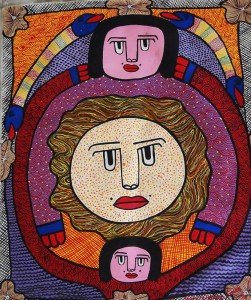
Postcolonial
- Tags: empire, diaspora, modernity, transnationalism
Postcolonial is a complex term that refers to discursive, ideological, historical, political and other modes of decolonization. It can be an aspiration as well as a political achievement. After WWII, formerly-colonized countries in Africa, Asia, the Pacific Islands, and the Caribbean gained independence and began struggling to build their own sense of community and national consciousness, and the literature that emerged from this became known as "postcolonial literature". However the term does not simply refer to a linear model of history in which one is simply liberated from a political and ideological system. The critics who shaped the early theories of postcolonialism include Albert Memmi, Aime Cesaire, Frantz Fanon, Edward Said, Homi Bhabha, and Gayatri Chakravorty Spivak. Many writers in Africa, South Asia, and the Caribbean appropriated literary conventions established during the heydays of the Empire in order to defy the colonial regime and cultural dominance. Postcolonial approaches offer a starting point for a critical analysis of matters concerning the nation, national consciousness, indigeneity, subjectivity, sovereignty, slavery, modernity, and the relationship between culture and empire.
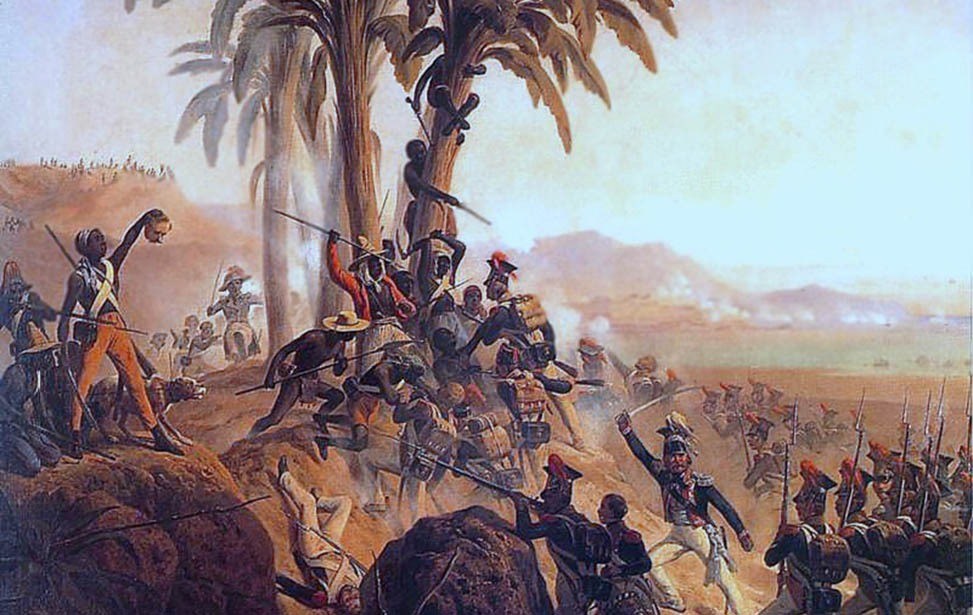
Revolution/Resistance
resistance exists in an oppositional relationship to power and occurs on a variety of scales (coalitions, individuals). Resistance can result in radical societal transformations while mass, strategic resistance make revolutions possible. Revolutions often signal resistance to colonial rule that succeed in radically transforming societal relationships (class, race) and structures (governance) and, in so doing, offers new ways of being.
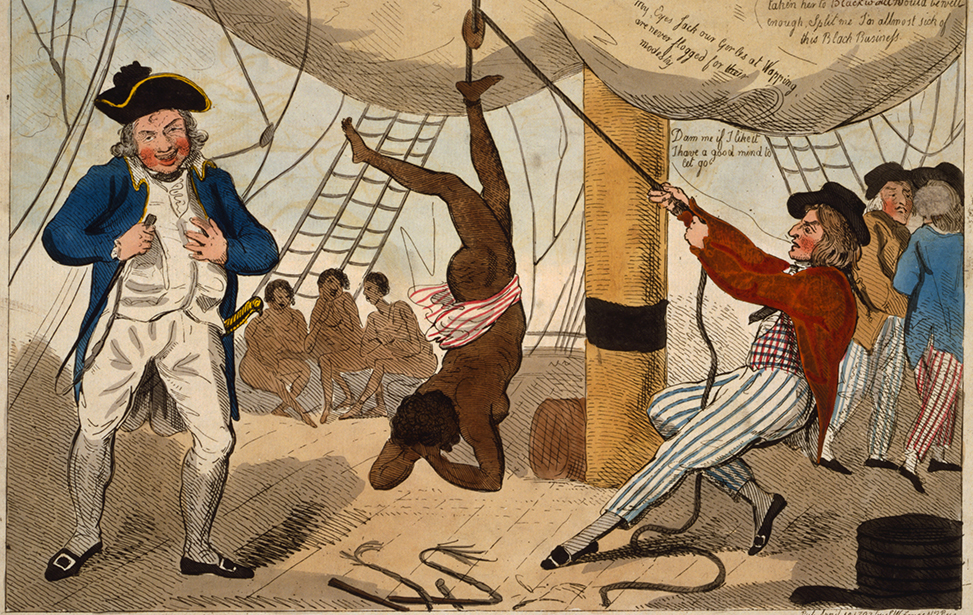
Slavery/Slave Trade
- Tags: diaspora, migration, Atlantic/transatlantic
The Atlantic or transatlantic slave trade was the capture, enslavement and transportation of Africans to North and South America and the Caribbean from the early 16th to the late 19th centuries. Spain, Portugal, France, Britain, the Netherlands, and the United States were the main countries involved in the triangular trade, which involved bartering manufactured goods and guns from Europe to Africa in exchange for human cargo. Enslaved people underwent the brutal Middle Passage to the Americas, where they were forced into agricultural labor to produce commodity crops such as cotton, indigo, sugar, and tobacco; these raw materials were then sent back on ships to Europe (and to ports in North America) jettisoning industrial manufacturing and immense profits. Historians estimate that 12 million Africans were forced into the slave trade, though the number for those who died on the Middle Passage remains unknown.
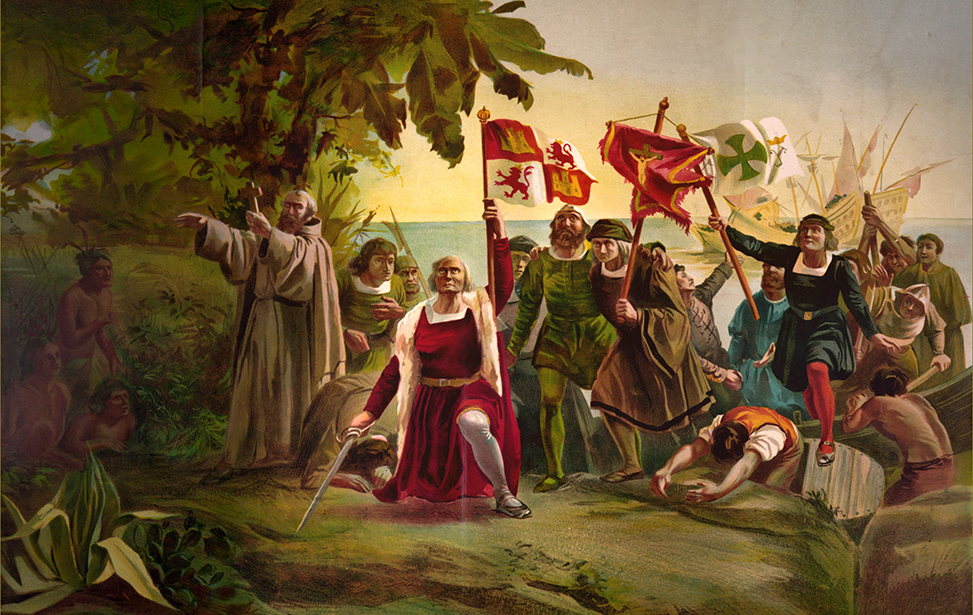
Transculturation/Contact zone
- Tags: hemispheric, Atlantic/transatlantic, empire
The term, originally coined by Cuban sociologist Fernando Ortiz in the 1940s, aimed to replace overly reductive concepts of acculturation and assimilation used to characterize culture under conquest. While subordinate peoples do not usually control what emanates from the dominant culture, they do get to select and invent from materials transmitted to them (ex. Mexican Catholicism is a syncretic blend of Aztec, Afro, and Catholic traditions). Transculturation is a phenomenon of contact zones which are social spaces where culture meets, clash, and grapple with each other, often in contexts of highly asymmetrical relations of power, such as colonialism, slavery, or their aftermaths as they are lived out in many parts of the world today.
From "Arts of the Contact Zone" by Mary Louise Pratt.
_-_Google_Art_Project_-_edited.jpg)
Translation
- Tags: postcolonial, migration
The interpretation of the meaning of a text in one language (the 'source text') and the production,in another language,of an equivalent text (the 'target text,' or 'translation'), which ostensibly communicates the same message. Translation has long been a contentious area of literary study and questions of felicity or faithfulness to the original versus beauty, or the adequate transference of aesthetic form have received increased and especially nuanced attention in post-colonial theory. The process of translation must take into account a number of factors,including context, the rules of grammar of both languages, their writing conventions, and the cultural nuances of the translated text. Translation is also seen as problematic in so far as it continues to privilege English texts over those in local languages with a flow-on effect for the status of those languages within their own communities.
From Bill Ashcroft et al's _Post-Colonial Studies: The Key Concepts_
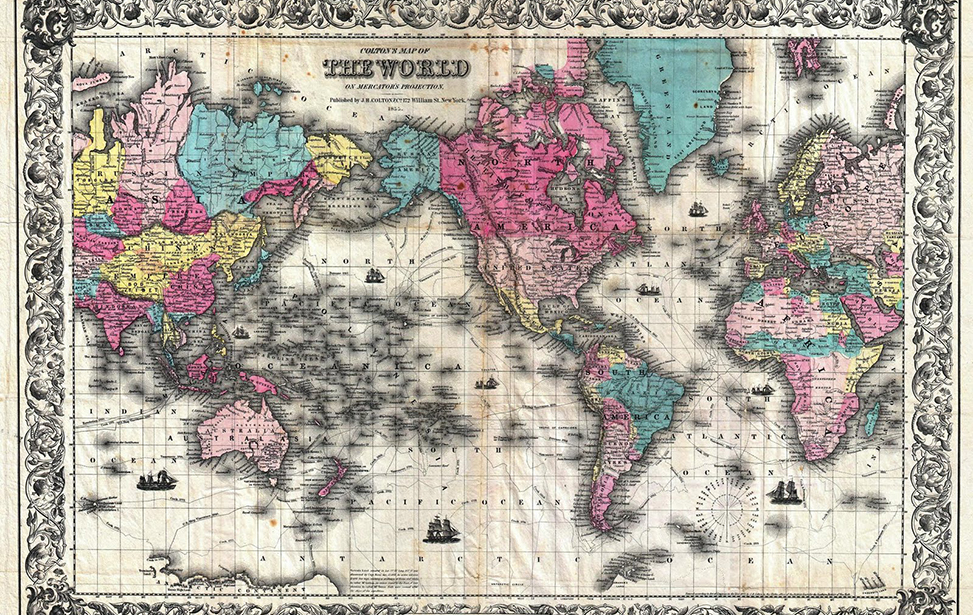
Transnationalism
- Tags: diaspora, migration, Atlantic/transatlantic
As a methodology, transnationalism destabilizes the nation as the sole object of study. Rather, transnational approaches to literature cut across national boundaries to denaturalize the concept of the nation and render visible the ideology of the nation. In so doing, transnational approaches include analyses of imperial power while placing nations and communities in a broader global context. Doing so allows for dialogic exchanges across nations rather than relying on a uni-directional flow from the "center" to the "periphery." Finally, transnationalism and other global frameworks think of the nation as one actor among many in the flow of people, ideas, and goods.
Keyword List
About List
This keywords list has been developed by students and faculty in an effort to provide a basic introduction to the key concepts central to ITP studies. It represents by no means an attempt to exhaustively state the complex issues surrounding each of these keywords. As scholarship develops, so should the meaning of these keywords.
Contribute
Do you notice a key author missing from our list or incorrect information? Please let us know by emailing us. We will attempt to fix the problem or omission as soon as possible. itp@ucla.edu
2014 © ITP-UCLA. ALL Rights Reserved. Privacy Policy | Terms of Service

